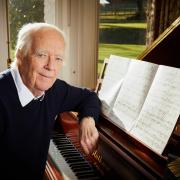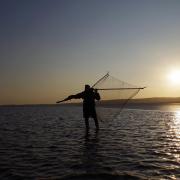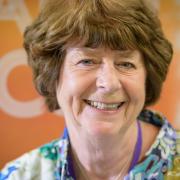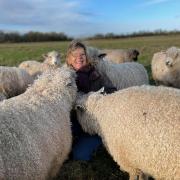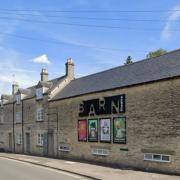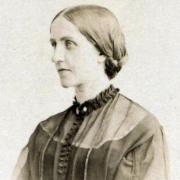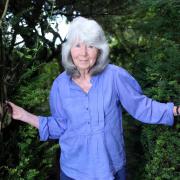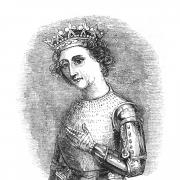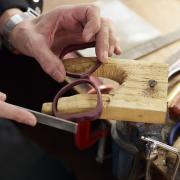We get to know ‘eccentric, subversive’ Sir Ralph Richardson. The Cheltenham-born actor may not have considered himself to be much of a looker, but he flourished on stage and screen with his combination of charm and mischievousness
One of the grand trinity of actors along with Gielgud and Olivier who dominated the British stage for a hefty chunk of the 20th century with their Shakespearean mastery, the eccentric, subversive Ralph Richardson (1902-83) was spared being parodied on Spitting Image (1984-96) along with the other two musketeers as he was the first to go, passing away just four months before the satirical puppet show first aired. It was left to the Gielgud and Olivier puppets to be increasingly aware of their own mortality: ‘Still alive?’ ‘Yes, still alive’. Sadly, none of them are any longer. Richardson, along with the other two, preferred to eschew any thoughts of a stage name and was always known by his birth name.


Born in Cheltenham on December 19, 1902, Ralph David Richardson had no pretensions towards acting, his familial background being more arty than thespian. His place of birth, a Georgian villa in the spa town’s upmarket Tivoli area, is today Grade II Listed, and was the rather splendid setting for Richardson’s early years. There’s a Cheltenham Civic Society and National Theatre blue plaque on the building proclaiming that: ‘Sir Ralph Richardson, Actor, Born Here, 19th December 1902’. It must have been quite a busy Christmas in the Richardson household. The Tivoli area had emerged from the 1830s, the villas intended for ‘the accommodation of persons in the middle ranks of life, who will here be enabled to pursue their respective callings’. A ‘fashionable suburb’ by the mid-1840s, or even better one of Cheltenham’s ‘aristocratic districts’ a decade later; an apposite place for one of the aristocrats of the stage to be born.

It was apparently a production of Hamlet in Brighton that got him thinking. He was the third son and youngest child of Arthur Richardson, senior art master at Cheltenham Ladies’ College (from 1893), and Lydia née Russell. Ralph’s parents separated in 1907 when he was just four, or as he put it: ‘She eloped with me, then aged four’. Mother and youngest son eloped together whilst Ralph’s siblings stayed with their father; an unusual outcome perhaps and one that meant that the young Richardson did suffer some hardship. Lydia, a devout Roman Catholic, had her eyes on the priesthood for her youngest. Absconding must have become part of Richardson’s psyche as he fled a seminary for trainee priests which he’d been sent to aged around 15. Having had a bash at art school, Richardson was drifting, unsure of his future direction, when he saw that Hamlet. He was actually very candid about his dabble at art, admitting that he lacked the persistency or talent and was too lazy to make a go of it.
Having made his stage debut in December 1920 as an 18-year-old, performing in Shakespearean plays, Richardson made his professional debut in August 1921 and whilst touring married Muriel ‘Kit’ Hewitt in August 1924, a young member of the same travelling company. He made his London debut at the Haymarket in 1926 and went on to play leading roles with the Old Vic over 1930-32 and 1938 including in Somerset Maugham’s Sheppey (1933) and J.B. Priestley’s Johnson over Jordan and Cornelius (1935). By the mid-30s he was already a West End star and would go on to appear in dozens of London stage plays. Richardson may have cut his teeth on the Bard, however, he expanded his credits into a wide, modern repertoire.

Having served in WW2, firstly with the Royal Naval Volunteer Reserve and then the Fleet Air Arm, a fairly undistinguished military career which earned him the moniker ‘Pranger’ for the number of planes that he wrote off, Richardson would be marrying again. His first wife, ‘Kit’, died on October 5, 1942, and Ralph was soon married for a second time just 15 months later on January 26, 1944 to fellow actor Meriel Forbes (1913-2000) with whom he had a son, Charles (1945-88), a future TV stage manager. Meriel would be Richardson’s trusty companion to the day he died. Coincidentally, ‘Pranger’ Richardson served on the same base as Laurence Olivier for a while, who also developed a reputation as a liability where aircraft were concerned. This accident-prone tendency followed Richardson to civvy street where he once fell through Olivier’s attic floor, landing on a bed in the room below which was also smashed. Apparently, Olivier’s wife of the time, Vivien Leigh, was less than impressed. During the war, Richardson compered some ‘morale boosters’, for example, at the Royal Albert Hall, whilst also appearing in a few films including the odd propaganda fest.
Richardson was knighted in 1947, the first actor of his generation to be so honoured (Olivier and Gielgud followed in ’48 and ’53 respectively), then became co-director of the Old Vic as well as actor when his performances, for example as ‘Falstaff’, enhanced his reputation, played with the Royal Shakespeare Company in 1952, including playing ‘Prospero’, and toured Australia and New Zealand in 1955. Some of his other notable stage appearances came in Home at Seven, The White Carnation and A Day at the Sea. His eccentricity was peerless. He once stopped mid-performance to ask the unscripted classic: ‘Is there a doctor in the house?’ When a medic made himself known, Richardson had a conflab with him about what an appalling play it was. You couldn’t make it up. This sounds like it was right out of his playlist, though, as he’d said that ‘the art of acting lies in keeping people from coughing’. He must have succeeded that night. Once, when stopped by the Plod in Oxford for walking extremely slowly along the gutter of a street, Richardson calmly explained that he was taking his pet mouse for walkies. His eccentric hobby, or not so eccentric depending on your viewpoint, was collecting motorbikes.

Richardson was also a notable film actor, although he was always better known as a stage aficionado, debuting as an extra in 1931, having his first real role in The Ghoul (1933), and appearing in over 60 movies including The Shape of Things to Come (1936), Anna Karenina and The Fallen Idol (both 1948), The Heiress (1949), Our Man in Havana (1959), Long Day’s Journey Into Night (1962) and Doctor Zhivago (1965). It was really during the 1940s and ’50s that he made the transition from stage to screen. I’m particularly chuffed that he appeared alongside Olivier in Richard III (1955) when Olivier portrayed a very malevolent, Shakespearean version of the car park king, whilst Richardson was the traitorous Duke of Buckingham who Richard has executed after he leads a failed rebellion. Gielgud popped up as Richard’s elder brother, George, Duke of Clarence, as well, who also comes to a sticky end. Richardson was twice nominated for an Oscar for Best Supporting Actor, firstly in The Heiress and then posthumously for his role in his final film, Greystoke: The Legend of Tarzan, Lord of the Apes (1984). Richardson directed one film in which he also starred, which seems like the way to do it; it was Murder on Monday (1962), a.k.a. Home at Seven.
Ralph Richardson died in London on October 19, 1983, aged 80. He had a refreshingly self-effacing quality about him, considering his fame, once declaring of himself that he’d: ‘Seen better looking hot cross buns’, and also claiming that his face had been ‘a great drawback’ to him. He brought something extra to the roles that he played, though, with a rich baritone voice and a telling combo of charm and mischievousness; his trademark characters being patriarchs and authority bods. He was also more than handy in a comedic role. His biography was written by H. Hobson (1958).

CHRONOLOGY
1902 – Ralph David Richardson born in Cheltenham (December 19).
1907 – ‘Elopes’ with his mother, Lydia, after she separates from his father, Arthur.
1920 – Makes stage debut as an 18-year-old having walked out of art school.
1924 – Marries Muriel ‘Kit’ Hewitt. They were members of the same travelling company.
1926 – Richardson’s London debut at the Haymarket theatre.
1944 – Marries for a second time to fellow actor Meriel Forbes.
1947 – Becomes the first of his generation of actors to be knighted.
1949 – Receives an Oscar nomination for his part in The Heiress.
1983 – Death of Sir Ralph Richardson (October 19) aged 80.
1984 – Posthumous Oscar nomination for his role in Greystoke.
References
Chambers Biographical Dictionary (1974)
Gloucestershire Live (gloucestershirelive.co.uk)
Britannica (britannica.com)
IMDb (imdb.com)
The Movie Database (themoviedb.org)
National Portrait Gallery (npg.org.uk)
Encyclopedia (encyclopedia.com)
South Town, Cheltenham Spa (cheltenhamsouthtown.org)




